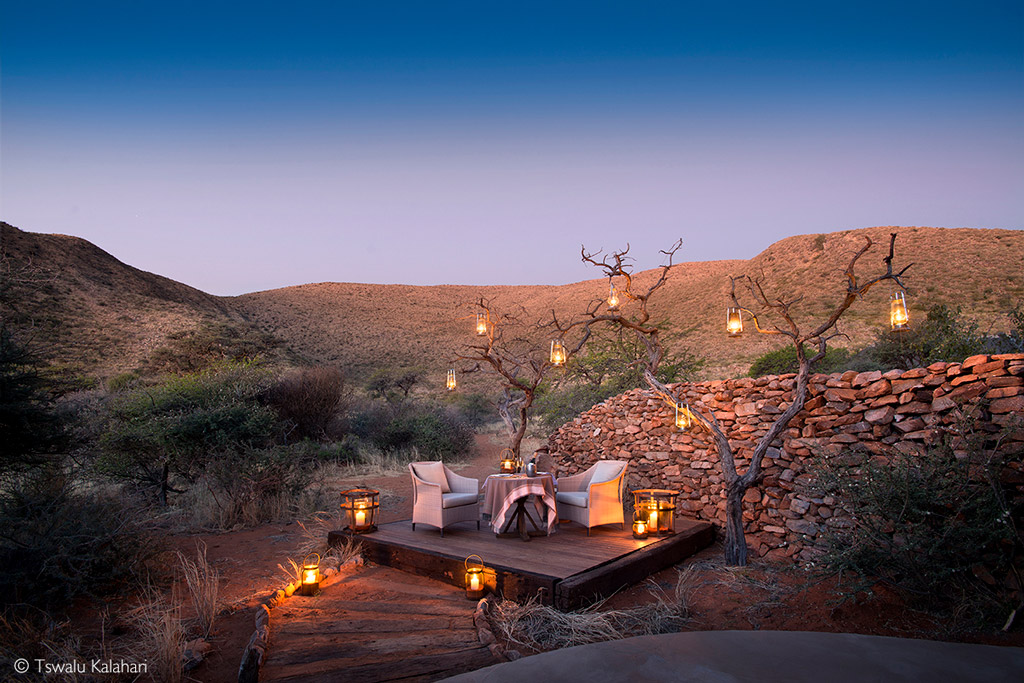
This is a copy of our weekly email newsletter. Subscribe here to receive the newsletter.
Wild Akagera + painted wolf pups + responsible safaris
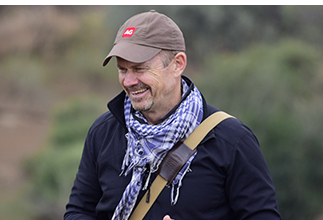
1,8 metric tons – that’s the amount of carbon dioxide I added to the climate change problem during my recent safari to Kenya. I want desperately not to have my travel choices contribute to destroying our precious ecosystems and biodiversity. And so I tried to work out how many indigenous trees to plant to offset my personal CO2 emissions for this safari. Because I love planting indigenous trees.
My online research generated a myriad of requests to donate to NGOs undertaking to plant trees on my behalf. That sounds like a neat way to quickly offload my guilt without much personal effort. But it turns out that the science behind this solution is not as simple as that because many factors come into play. One suggestion that stuck out during my research is that preserving existing (and restoring degraded) habitats is a more effective strategy than planting young trees.
Coincidently, during my trip to Kenya, I spent time with a wonderful NGO securing tracts of indigenous forest by purchasing land from local communities and creating sustainable forest-related livelihoods for those communities. Of course, this project is not unique – there are numerous worldwide. But this project relates specifically to my safari. And so, I plan to mitigate my footprint by donating to this cause. More about this fantastic project when teamAG publishes my writings in the coming months.
Feel free to treat my carbon footprint mitigation attempts with scorn or to share your own strategies in the comments section below (app only) or in the forum section of our app.
Keep the passion

Simon Espley – CEO, Africa Geographic
From our Editor – Taryn van Jaarsveld
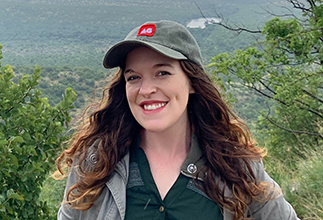
The quintessential Rwandan safari consists of trekking to find gorillas and other primates, and exploring rainforests and volcanoes. But did you know that Rwanda has a Big Five park, which is a refuge for savannah-adapted wildlife? Akagera National Park’s status as a premier safari destination has risen over the past decade, in large part thanks to African Parks’ involvement. Read our first story below to find out all there is to know about travelling to this corner of the continent.
This week, we are also delving into research that shows there is order in wild dog hunts. Scientists have long been intrigued by the social structures and hierarchies of wild dog packs. But new findings confirmed a fascinating approach in pack dynamics: when the pack makes a kill, pups eat first. Read more about what all this means in our second story below.
In the past few weeks, we’ve been analysing the issues surrounding leopard habituation. Our in-depth analysis, undertaken by Jamie Paterson and Maxine Gaines, delves into the unintended consequences this has for leopards.
This story is now available on our public website for easy access – see below.
Happy celebrating Africa!

From our Scientific Editor – Jamie Paterson
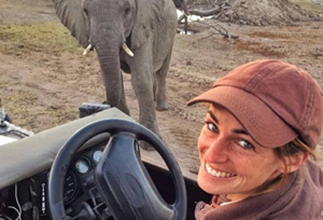
Now and again, a little tidbit of new research comes along that completely unsettles my understanding of how certain things work.
If you (like me and many other guides I know) were under the impression that woodpeckers’ skulls act as shock absorbers, prepare to have your world rocked. Did you know that woodpeckers’ heads function as stiff hammers rather than safety helmets? This, despite the fact that the shock of the repeated impacts exceeds the concussion threshold for humans.
I have a headache just thinking about it.

Story 1
https://africageographic.com/stories/akagera-national-park/
AKAGERA, RWANDA
Akagera National Park is Rwanda’s last refuge for savannah-adapted wildlife, and safeguards Central Africa’s largest protected wetland
Story 2
https://africageographic.com/stories/kids-eat-first-research-on-wild-dog-feeding-habits/
WILD DOGS
New research shows that there is order in wild dog hunts, and pups are the first to eat at a carcass
Story 3
https://africageographic.com/stories/habituating-leopards/
HABITUATING LEOPARDS
Does the habituation of leopards by the tourism industry create problems and result in unintended consequences for leopards?
 TRAVEL DESK UPDATES:
TRAVEL DESK UPDATES:
This week we feature 2 epic short safaris for the time-pressured traveller and those wanting to top up their longer safaris with the ultimate finale
Botswana’s salt pans – 4 days
This could be your zen moment – those vast desolate pans and giant ancient baobabs bring out the philosopher in us all. Or take advantage of the many activities on offer (how about that salt pan sleep-out?) to end your safari with a bang. Prices to suit all budgets
Gorilla trekking in Rwanda – 3 days
This primal experience is on most ultimate traveller bucket lists. Why not add 3 days of gorilla trekking to your Maasai Mara or Serengeti safari to create the ultimate dream vacation?
DID YOU KNOW that you will find more than 340 camps & lodges on our app? And we feature ready-made packages that even the most experienced traveller will drool over. Login, select ‘Travel with us’ from the menu above and search based on place and other important choices (such as lodges in non-malaria areas or packages that include the Big 5). You can add your selection of lodges and packages to your wishlist – which will remain saved until you choose to edit or delete.
New safaris in the works
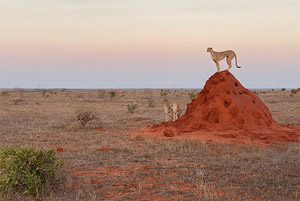 This cheetah and her cubs posed beautifully for our CEO Simon last week in Tsavo East National Park, Kenya. Simon has just returned from his safari, which was spent researching exciting destinations to add to our list of recommended lodges, and finding new adventures for our travel experts to add to your next itinerary. Watch this space for exciting things to come!
This cheetah and her cubs posed beautifully for our CEO Simon last week in Tsavo East National Park, Kenya. Simon has just returned from his safari, which was spent researching exciting destinations to add to our list of recommended lodges, and finding new adventures for our travel experts to add to your next itinerary. Watch this space for exciting things to come!
 WATCH: How African wild dogs keep the ecosystem in check: In Gorongosa, Mozambique, where the species was wiped out completely, an ambitious scheme reintroduced them – with positive consequences for the whole ecosystem (07:31). Click here to watch
WATCH: How African wild dogs keep the ecosystem in check: In Gorongosa, Mozambique, where the species was wiped out completely, an ambitious scheme reintroduced them – with positive consequences for the whole ecosystem (07:31). Click here to watch
To comment on this story: Login (or sign up) to our app here - it's a troll-free safe place 🙂.![]()








